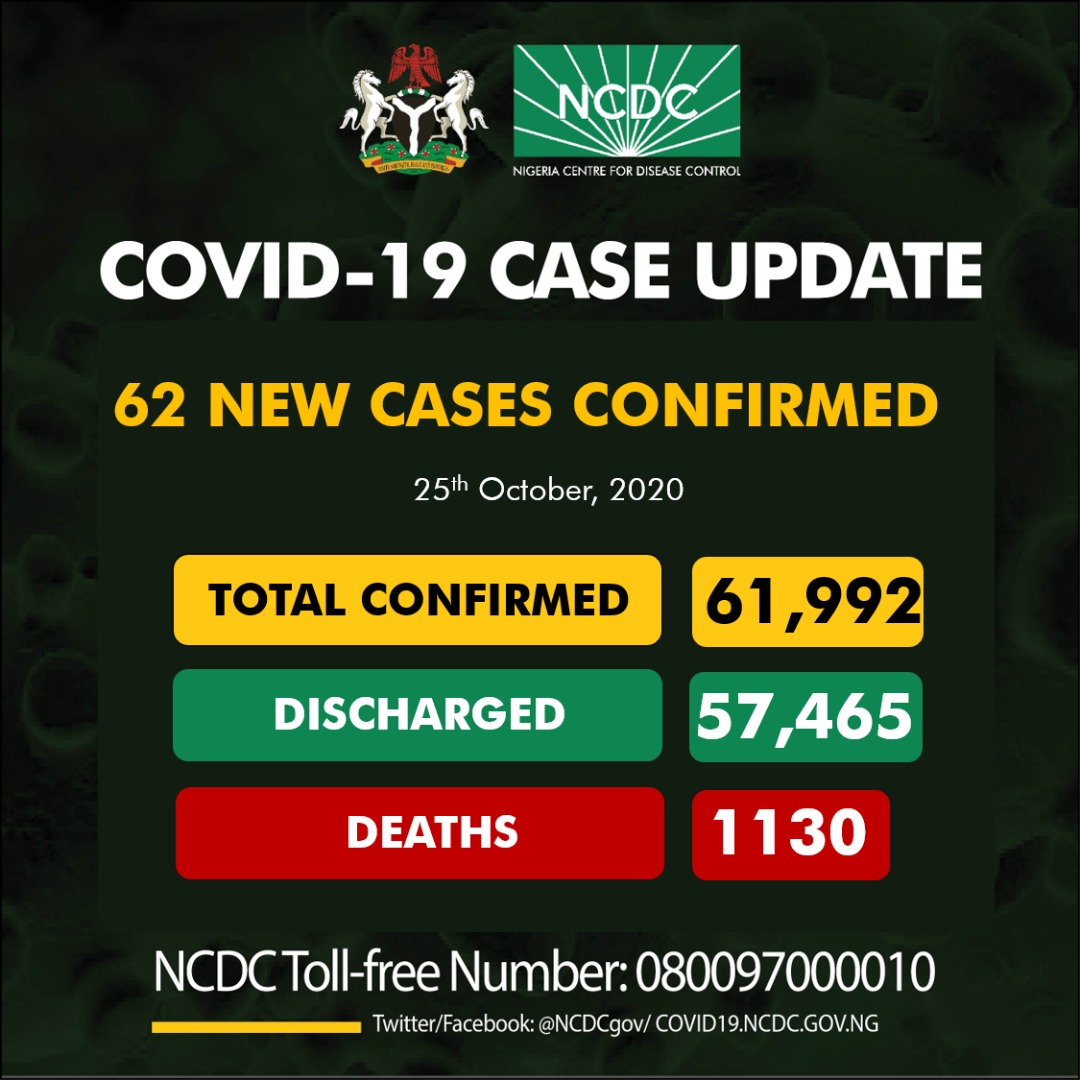The Nigeria Centre for Disease Control (NCDC) says Lagos state the nation’s epicentre of the COVID-19, on Sunday, recorded zero infection.
The NCDC, on its verified Website, said it recorded 62 new cases of COVID-19 in the country.
The centre said with the 62 new infections, the country now has 61,992 confirmed cases of COVID-19.
The NCDC also said that 180 COVID-19 patients were discharged across the country in the last 24 hours.
It announced that one new COVID-19 death was reported in the last 24 hours with the national death toll at 1,130.
The centre said that 10 states and FCT recorded new cases on Sunday with Taraba leading with 18 cases, while Ogun recorded 15 cases.
Other are FCT-six; Kaduna-six; Katsina-four; Ondo-four; Ekiti and Rivers-three each; Kano, Osun, and Sokoto-one each.
“Since people can spread the virus before they know they are sick, it is important to stay at least six feet away from others when possible, even if you or they do not have any symptoms,” it stated.
The NCDC also advised that social distancing was especially important for people who were at higher risk for severe illness from coronavirus.
“If you are sick with COVID-19, have symptoms consistent with COVID-19, or have been in close contact with someone who has COVID-19, it is important to stay home and away from other people until it is safe to be around others,” it said.
The public health agency said that coronavirus could live for hours or days on a surface, depending on factors such as sunlight, humidity, and the type of surface.
“It may be possible that a person can get COVID-19 by touching a surface or object that has the virus on it and then touching their own mouth, nose, or eyes. However, this is not thought to be the main way the virus spreads.
“Social distancing helps limit opportunities to come in contact with contaminated surfaces and infected people outside the home.
“Although the risk of severe illness may be different for everyone, anyone can get and spread coronavirus.
”Everyone has a role to play in slowing the spread and protecting themselves, their family, and their community,” NCDC advised.

